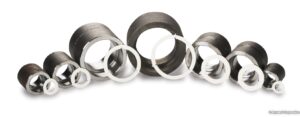Industrial Ceramic Cups: Durable, Heat-Resistant Components for Extreme Applications
In industrial settings, materials must endure harsh conditions such as high temperatures, corrosive environments, and heavy wear. Ceramic cups for industrial use are engineered to meet these demands with superior thermal resistance, electrical insulation, and mechanical strength. Far beyond traditional ceramic drinkware, these specialized components play a vital role in manufacturing, welding, and high-temperature processing industries.
What is an Industrial Ceramic Cup?
An industrial ceramic cup is a high-performance component made from advanced ceramic materials like alumina (Al₂O₃), zirconia (ZrO₂), silicon carbide (SiC), or other refractory compounds. These cups are designed to withstand extreme heat, electrical stress, and mechanical abrasion, making them essential in industries like:
- Metallurgy and foundries
- Welding and cutting systems
- Glass and ceramic production
- Electrical insulation
- Chemical processing
Unlike decorative ceramics, industrial ceramic cups are precision-engineered to deliver consistent performance under extreme conditions.
Key Benefits of Industrial Ceramic Cups
- High Temperature Resistance:
Industrial ceramics can withstand temperatures exceeding 1500°C (2732°F), making them ideal for molten metal handling, welding applications, and furnace components. - Corrosion and Chemical Resistance:
Ceramic materials resist degradation from acids, alkalis, and solvents, ensuring long-lasting performance in chemically aggressive environments. - Excellent Electrical Insulation:
Ceramic cups are often used in electrical applications due to their high dielectric strength and low conductivity. - Thermal Shock Resistance:
Advanced ceramics can tolerate rapid temperature changes without cracking, unlike metals or standard materials. - Wear Resistance:
Their hardness and low friction make them ideal for applications involving mechanical wear or abrasive materials.
Applications of Industrial Ceramic Cups
Ceramic cups are used in a wide range of industrial processes, including:
- TIG Welding and Plasma Cutting:
Ceramic gas cups act as nozzles that focus shielding gas around the arc, improving weld quality and stability. - Molten Metal Transfer:
Crucible-type ceramic cups are used to contain and pour molten metal due to their high melting points and thermal insulation. - Electrical and Thermal Insulation:
In high-voltage environments, ceramic insulator cups protect components and prevent arcing. - Laboratory Furnaces:
Small ceramic cups serve as sample holders or crucibles for chemical analysis and thermal testing.
Choosing the Right Ceramic Cup for Industrial Use
To select the appropriate ceramic cup, consider:
- Material Composition:
Choose the right ceramic (alumina, zirconia, SiC) based on thermal, chemical, and mechanical demands. - Operating Temperature:
Ensure the cup’s material can handle peak temperatures of your application. - Size and Design:
Match the cup’s dimensions and shape to your system specifications for a proper fit and efficient performance. - Manufacturer Reputation:
Opt for products from established industrial ceramic suppliers to ensure material quality and consistency.
Conclusion
Industrial ceramic cups are critical components in high-performance environments where traditional materials fail. With outstanding heat resistance, electrical insulation, and mechanical strength, they are indispensable in welding, metallurgy, and advanced manufacturing. Investing in high-quality ceramic cups not only improves operational efficiency but also extends equipment life and reduces downtime.





















